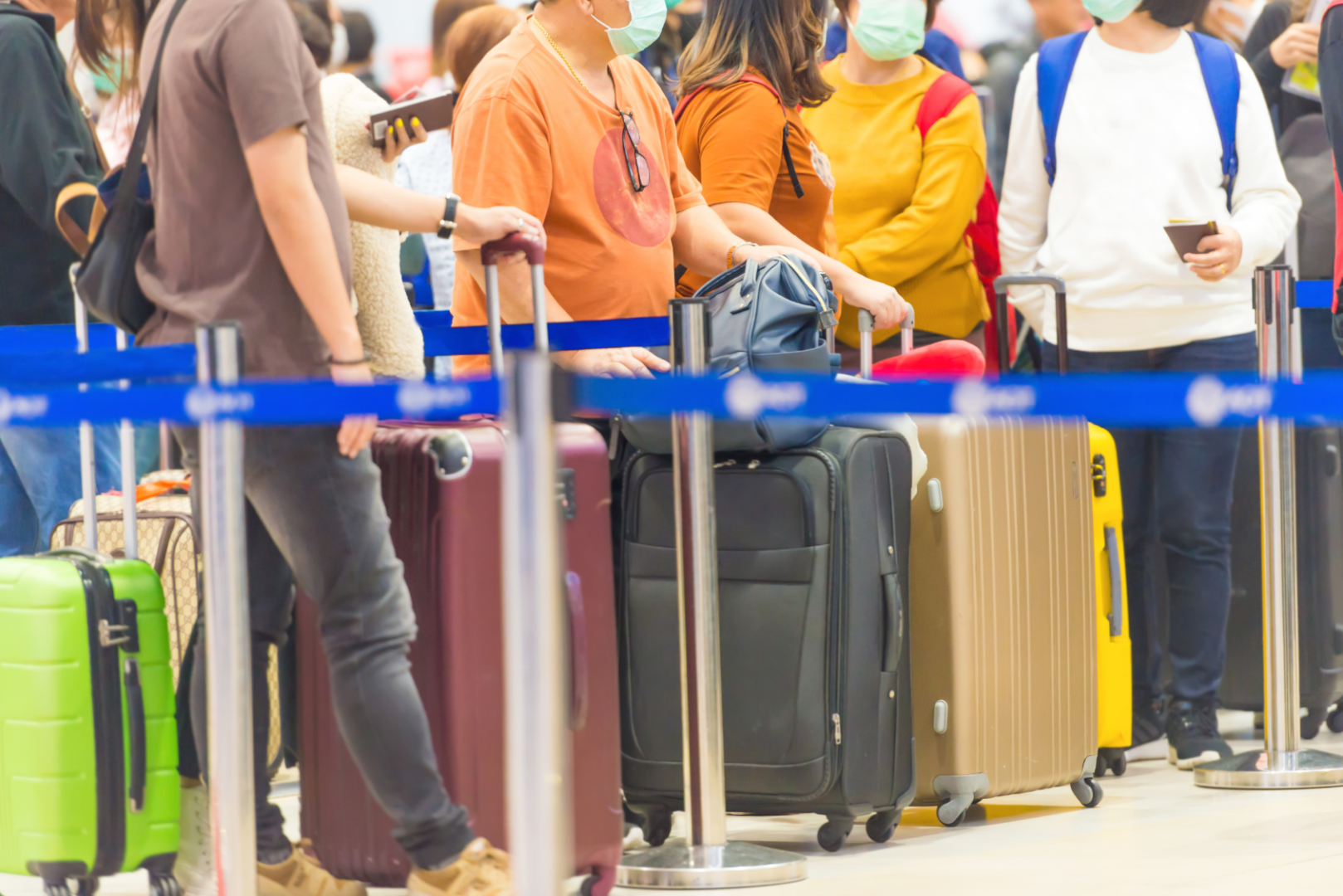As we enter the third season of the pandemic, it feels like we have more questions than answers. That’s especially true for travelers.
There was hope that the vaccine rollout would mean worry-free jet-setting and reopened international borders, but the omicron variant disrupted those plans, with cases hitting record highs. Now that COVID-19 case numbers are falling again, there’s a positive outlook on the future.
In fact, Dr. Scott Gottlieb, the former Food and Drug Administration commissioner and a member of the Healthy Sail Panel, told travel agents during a conference call at the invitation of Norwegian Cruise Line Holdings that COVID-19 is quickly approaching “an endemic phase where this becomes a persistent issue, but an issue that fades into the background of our daily lives.”
Experts agree that COVID-19 will forever be part of our ecosystem, although the public health crisis will wane. Again, this leaves us with new, unanswered questions.
“I believe that as [COVID-19] becomes endemic, travel will return to something that feels more normal, but not all the way,” Dr. Brad Bowman, chief medical officer at Healthgrades (which is owned by TPG’s parent company, Red Ventures) told TPG.
“Because [COVID-19] is so much more than seasonal influenza, some protective and transmission measures will likely continue to be recommended.”
So, what does that mean long-term for travel as the pandemic morphs into an endemic? Here’s what the experts say.
Proof of vaccination or additional symptom questionnaires could become the norm
Right now, if you want to travel abroad, many countries require proof of vaccination.
After all, we saw the news of tennis star Novak Djokovic getting deported from Australia due to his vaccination status. However, countries like the U.S. don’t require proof when flying domestically.
Some destinations, such as India and the European Union, have created a digital platform that links your vaccination status with your travel information. This is meant to not only make it easier to fly but also help “ensure that restrictions currently in place can be lifted in a coordinated manner.”
That statement suggests there could be a time when vaccination status won’t matter.
Even if that doesn’t come to fruition and proof of vaccination remains a requirement for entry, travelers shouldn’t be that surprised. Currently, multiple vaccinations for everything from yellow fever to malaria are required to travel to certain parts of Africa. So, a world with a COVID-19 vaccine requirement is not that different from the one that existed before the pandemic.
What remains to be seen is if it will vary based on destination, a belief held by Dr. Pia MacDonald, senior director of applied public health research at RTI International. While MacDonald says it’s unlikely domestic travel will require proof of vaccination, she suspects that international travel would differ significantly.
“Lower- and middle-income countries that don’t have those excellent tracking systems or easy access to vaccinations could still have a vaccination mandate to protect their populations,” she said.
Bowman agreed, adding, “It’s not hard to imagine that safety itself could emerge as a premium class (i.e., vaccine passport class). Airlines will likely follow health care’s lead and adopt similar employee requirements.”
For travelers, it could morph into something where “symptom questionnaires could be added to the boarding and check-in process” instead of a vaccine mandate, according to Bowman.
Testing mandates could be seasonal or go away altogether
If you’ve traveled internationally at any point in the last couple of years, you know that COVID-19 testing is part of the process. As new variants have emerged, these requirements have shifted and changed over time, with the latest guidance for entry into the U.S. being a test taken within a day of arrival.
While studies have shown that testing helps reduce the rate of transmission, it will ultimately become “voluntary but strongly encouraged, especially in flight and in common areas,” according to Bowman.
MacDonald notes, however, that there will be a noticeable difference between domestic and international travel. Domestically, she believes a testing mandate is not likely. But, for travel abroad, she expects it to remain in place, though it could morph into something that greatly differs from the current testing requirement.
“The endemic phase is going to include this emergence of variants that are more or less dangerous,” MacDonald said, “so, there will be an ebb and flow of change that we will have to get used to in the same way we have for influenza.”
That means we could be required to test during certain times of the year when COVID-19 spikes, similar to the flu.
Or, testing could take on an entirely new meaning.
Instead of relying on COVID-19 tests, countries could lean more on biometric screening and other illness symptom tracking methods. We see this now in places like China, where your temperature is automatically taken when you enter the country.
“As a global travel community, we’ve built out more infrastructure for testing and monitoring,” MacDonald said. “More of that is likely to come to screen for [COVID-19], future variants and new viruses.”
Masks could remain a part of air travel, whether they’re mandated or not
Mask-wearing has become a point of contention in the U.S., though it’s been the norm in other regions like Asia long before the pandemic.
Right now, masks are required on airlines, but it’s clear many people are eager to see that mandate lifted.
As we move into the endemic phase, Dr. Anthony Fauci, the top infectious-disease expert for the White House, foresees mask-wearing as the norm on planes.
“It is conceivable that as we go on, a year or two or more from now, that during certain seasonal periods when you have respiratory-borne viruses like the flu, people might actually elect to wear masks to diminish the likelihood that you’ll spread these respiratory-borne diseases,” he said.
Likewise, Bowman believes “a significant number of staff and passengers will choose to wear masks,” though she does not think it will be mandated in the future.
Others, like MacDonald, envision a future that’s more like the testing mandate, where masks will be required at particular times of the year, with guidance varying by country. There’s the possibility it could eventually become permanently mandated, though that would likely take a long time.
“Look at smoking on planes,” MacDonald said. “That changed over time where certain countries still allowed it and others didn’t until it was permanently banned. Masking will also change over time, especially as travelers become more and more used to it.”
Bottom line
While there is still so much up in the air about the future of COVID-19, it’s likely to continue affecting travel, even after the pandemic transitions into an endemic. Pandemic travel requirements such as masks and symptom screenings are probably here to stay, though they may look different from current measures.
Much like other communicable diseases before it, COVID-19 may never completely go away. Only time will tell just how much measures to combat it will remain a part of our travels.
Source: The Points Guy






